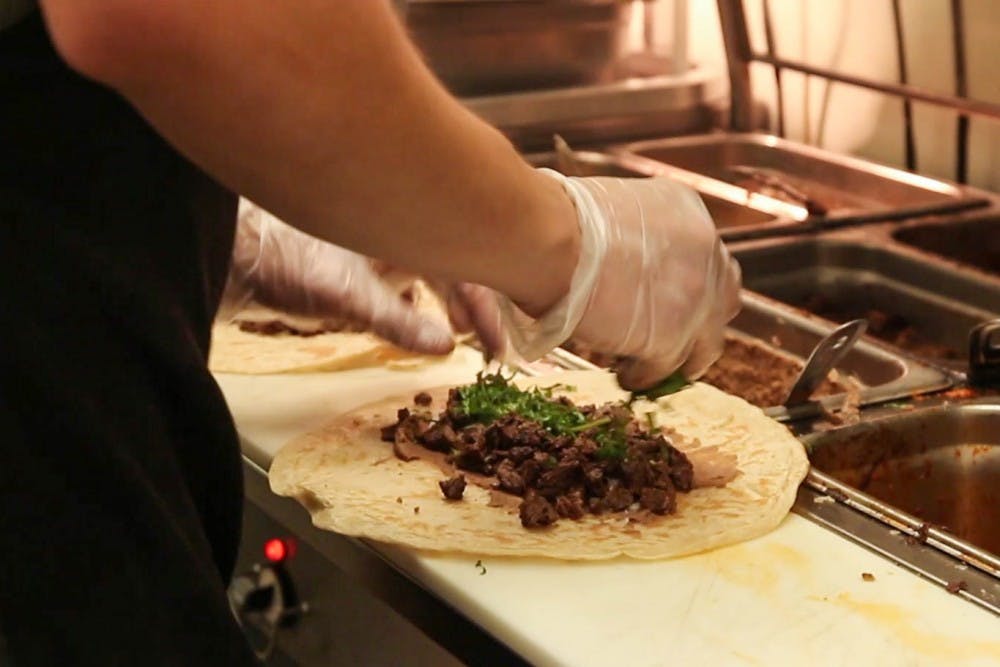Carne asada sizzling on the grill, homemade corn tortillas being pressed to order and asadero cheese melting on top of jalapenos and Anaheim chilies.
These are just some of the Mexican culinary traditions that are represented at Tacos Chiwas, a Chihuahua-style restaurant that emphasizes the importance of regional cuisine. Located on McDowell Road in Phoenix, owner Armando Hernandez said he and his wife try to recreate their childhoods through food — and now ASU is offering a course to teach students about these traditions.
The ASU School of Transborder Studies is offering a new course in the Spring 2019 semester called "Mexican Foods in the Southwest," which is open to all majors. The course will allow students to “explore historical and contemporary issues relating to Mexican and Mexican American culinary traditions with a focus on the U.S. Southwest,” according to the course description.
Lisa Magana, associate director and professor of the School of Transborder Studies and the creator of the new course, said the class aims to be interdisciplinary and look at food in the Southwest region from a variety of perspectives.
“I wanted a course that would have a universal appeal, and I think through food it’s a way of learning about culture, immigration, politics and geography,” Magana said. “It can all be there in food.”
Magana said students will use different forms of media, like film, television and more, to learn about topics such as food as spirituality, food as joy of living and food as resistance and fusion of Mexico and the Southwest.
She said she wants the course to be open enrollment, especially for out-of-state or international students who may be interested in learning about food and culture in the region where they are attending school.
Tacos Chiwas has gained a lot of positive feedback since opening in 2016, including being featured on Guy Fieri’s “Diners, Drive-Ins and Dives” in the episode "Birds and Beef" in 2017.
The counter-service restaurant is owned by Hernandez and his wife Nadia Holguin, who were both born in Chihuahua, Mexico. Hernandez said they opened the restaurant in order to create a better representation of their regional cuisine in Phoenix.
He said there is something special about keeping traditions alive with food, and he thinks the food made in his restaurant resonates with so many people because it is similar to what they grew up eating.
“My wife and I always talk about how we’re recreating our childhood through our food,” Hernandez said. “I think that’s what makes our food special is we really are doing it because it’s what we love, and it represents a lot more than just food in general.”
Hernandez said he drives to Mexico once a year to bring back 500 pounds of dehydrated red chili because he wants the food in his restaurant to taste exactly like what he grew up eating.
“Not everybody has the luxury of having their grandma wake you up with a fresh-made tortilla,” he said. “Maybe at the time when you were little, or as we were growing up, you don’t realize how special that is.”
Rhian Stotts is a lecturer who teaches the anthropology class "Food and Culture" at the ASU School of Human Evolution and Social Change. The class focuses on looking at food through the scope of anthropology, focusing on the biological and cultural aspects.
“Food is essential to life — we have to eat to survive — and yet also latent with meaning. What we eat says a lot about who we are, as well as what we don’t eat," she said.
Hernandez said he is passionate about his profession because he considers it a social responsibility to teach people about where he’s from.
“I’m not saying food will solve all issues, but it is something that we all share," he said. "No matter who you are, you eat. No matter what you believe in, you centralize around food."
Reach the reporter at chofmann@asu.edu and follow @chofmann528 on Twitter.
Like The State Press on Facebook and follow @statepress on Twitter.




